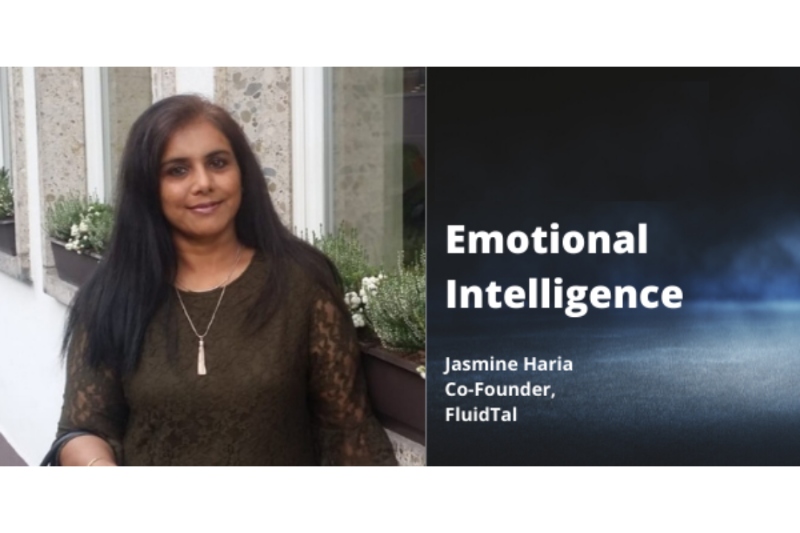Emotional intelligence goes beyond the administrative nuts and bolts of being a great leader and emphasizes how your emotions affect others and how you can fine-tune the knowledge to drive behavior and create positive outcomes

The COVID-19 pandemic has really moved the needle for emotional quotient or intelligence in a generation, we would have imagined ever.
Emotional intelligence goes beyond the administrative nuts and bolts of being a great leader and emphasizes how your emotions affect others and how you can fine-tune the knowledge to drive behavior and create positive outcomes — both personally and with the people you manage.
The ‘traditional top-down’ leadership strategy is challenged today and the way we do business has undergone a fundamental reset following the Cataclysm of the pandemic which has shunned a stark light on leadership shortfalls and pitfalls in the business world.
Going forward, the future of work is Hybrid. How is EQ going to be imperative for future leaders?
The leaders of tomorrow will face an unrivaled set of challenges as we emerge from this pandemic.
Much of the time, they will be increased engagement in a virtual environment and keeping oneself prepared for the unexpected.
Not only will they still require the ‘traditional’ leadership skills, competence and experience that brought them to the top of their companies but also a grounded emotional understanding of the ever-evolving situation around oneself. This needs mutual patience, compassion, empathy and trust.
Throughout this pandemic, we've seen inspiring examples of courageous and emotionally intelligent leadership, as well as those struggling to embrace these ideas. The classic example was the successful launch of Perseverance in March 2021. The complex technology came not only from NASA rocket scientists but also from a variety of U.S small businesses identified, nurtured and funded. By integrating these contributions into the larger NASA design is like conducting an orchestra in a symphony.
The crisis sparks a wave of innovation, pushing its boundaries and launches a generation of entrepreneurs who are earnest and realistic. A few actionable steps to succeed:
• Collaboration will work best virtual-first.
• Autonomy to full-time employees to excel in their current roles
• Empower the team with leadership tasks
• Increased accountability within the team. This will lead to the team taking on more responsibility and deliver needle-moving results.
Daniel Goleman's five components of emotional intelligence
1. Self-awareness: Leaders to firstly maintain their own well-being and support those around them. When a leader demonstrates authenticity by acknowledging what they are uncertain about, they create a clear channel for trusted communication.
2. Self-regulation: Mindfulness-based emotional intelligence requires non-judgmental awareness, which is key to a balanced view of the challenge and change.
3. Social skills: Leaders should embrace difficult conversations and be transparent about uncertainty, although they may not have the answers and may need to take local responsibility for the consequences of decisions made externally. This requires resilience and agility to make tough decisions.
4. Empathy and Compassion: Leading with compassion includes not only considering others’ needs but sensing what would genuinely serve them best that everyone is in the crisis together.
5. Internal Motivation and vision: Influential leaders have a vision of the future grounded in truth and lifted with optimism. Cultivating the ability to envision unseen possibilities provides a roadmap to the multimodal workplace. Trusting ourselves and our virtual teams to put the vision into action quells fear and inspires hope.
Due to the trend shifted to remote working, EQ and the ability to increase the emotional intelligence (EI) of teams is more important than ever. A transition of remote interactions — including telecommuting and the rise of video conferencing have all made EQ more important. This sets higher pressure for teams to communicate and build higher interactions and align with cultural differences and emotional expressions especially for global teams working remotely.
Emotionally intelligent leaders strike a balance in times of crisis by reducing internal noise and negative interactions. Emotionally competent leaders clear the way for productivity, creativity, openness, collaboration and create psychological safety and fostering gratitude. And take heart - none of these things are easy or will lead to overnight success. But they are the right first steps to turn that flywheel and build a reputation and brand that will propel the business forward.
FluidTal is addressing this need in our electronic vetting of talents for Digital Transformation to do a deep dive on a candidate’s technical and EQ ability. Our video-based assessments have inbuilt Security for Candidate authentication, fraud detection, and analysis and the process is seamlessly digital.
FluidTal on hrtech.sg marketplace & 2021 Singapore HRTech Marketmap
About the author:

Jasmine Haria possesses rich Executive Search experience in Technology, Digital, Ecommerce, Banking, Sales, Leadership and Management Consulting.
An out-of-the-box and creative thinker, who sets challenges and dares to work outside her comfort zone. A motivated team leader who consistently aims to achieve Milestones. Pragmatic and results orientated, with a focus on bottom-line results. With over 20+ years of experience in Strategic Project Management and Talent Acquisition in fast-paced and international environments, she incubated this year a new venture FluidTal, a vetted platform of Digital Talents on EQ and IQ. In traditional hiring, EQ is quite undervalued in the traditional hiring scenario. Emotionally intelligent leaders are simply better at inspiring others, dealing with stress, overcoming adversity and building strong teams. She is looking to build a marketplace of vetted talents. LinkedIn

